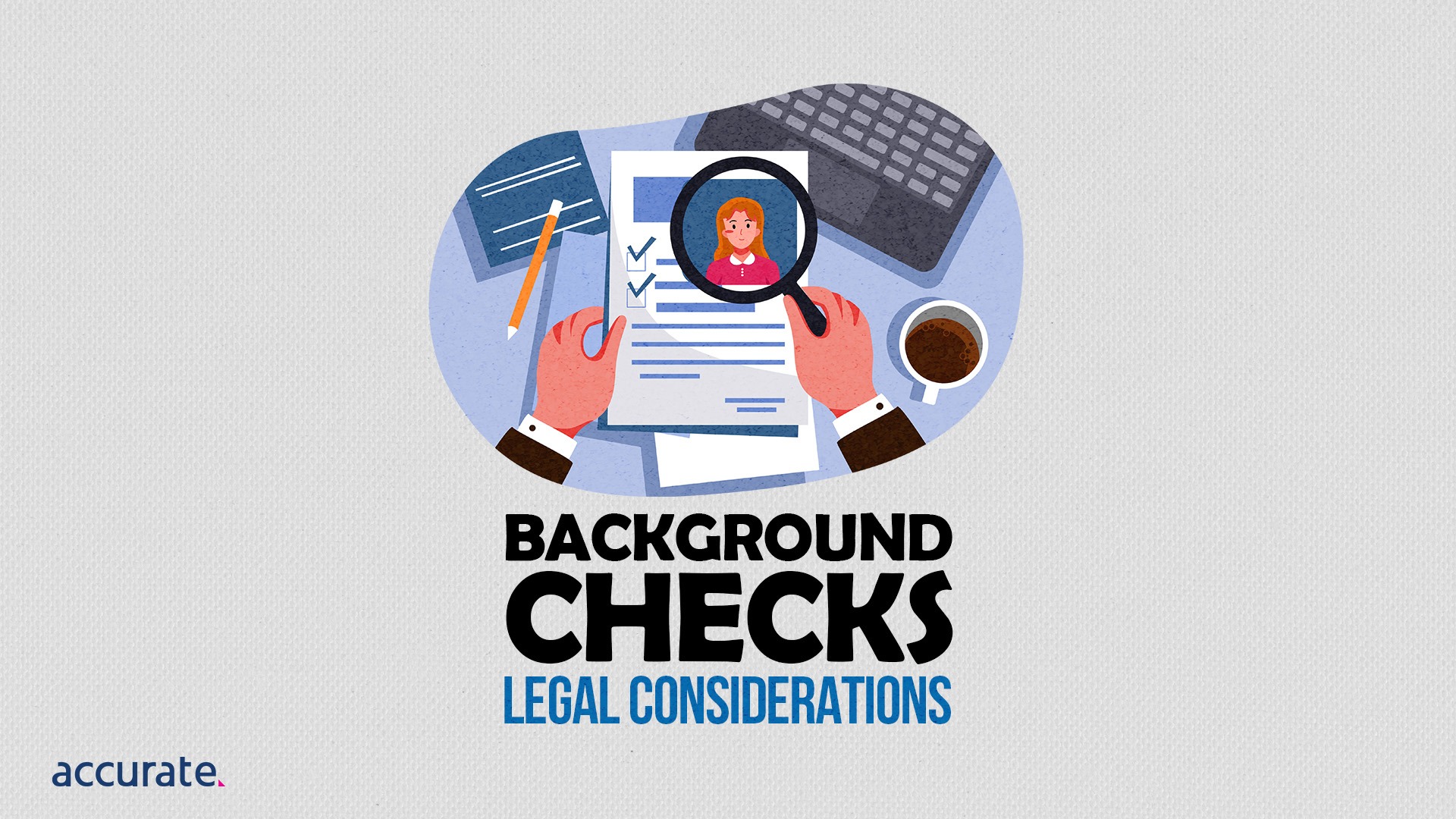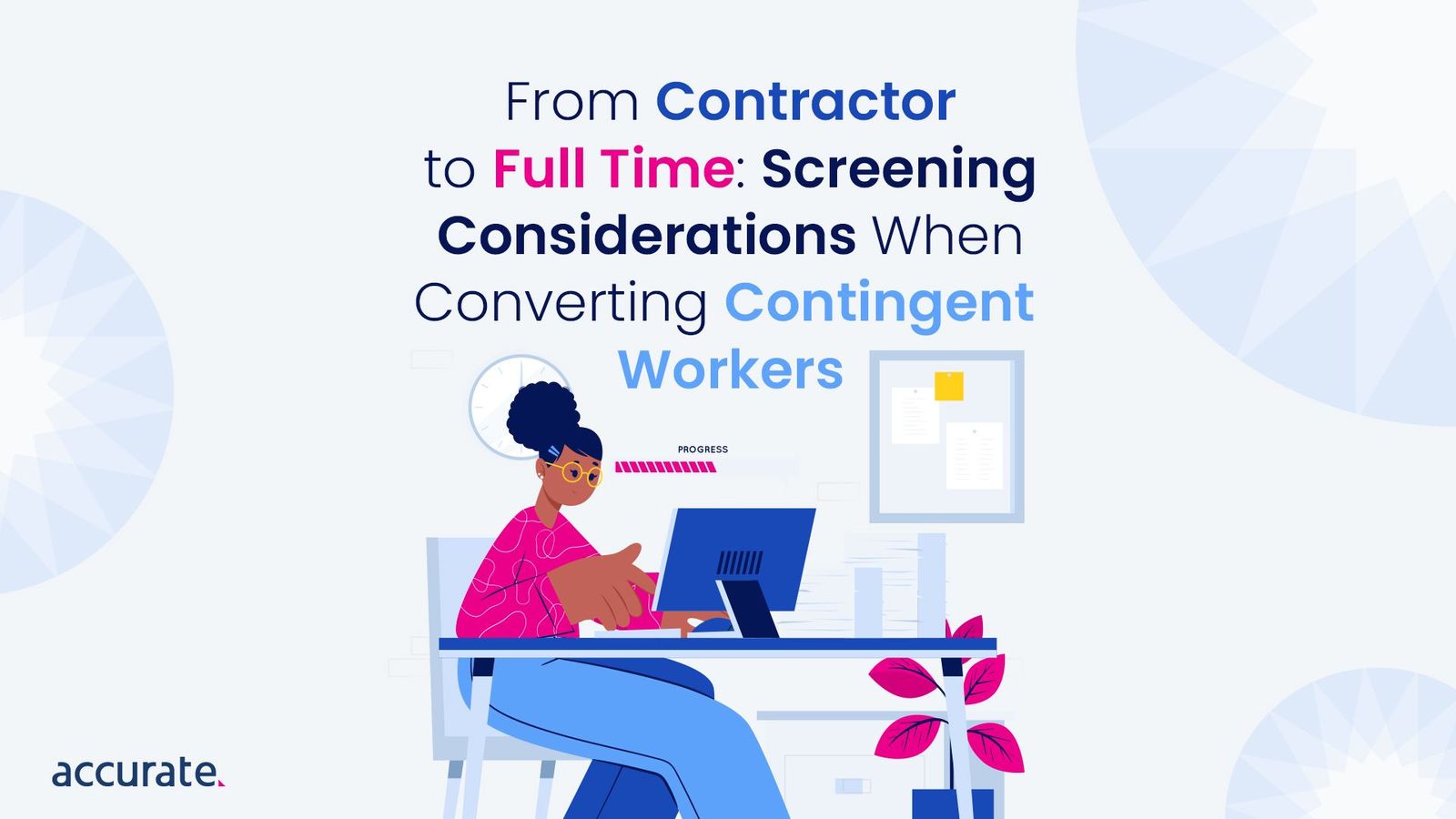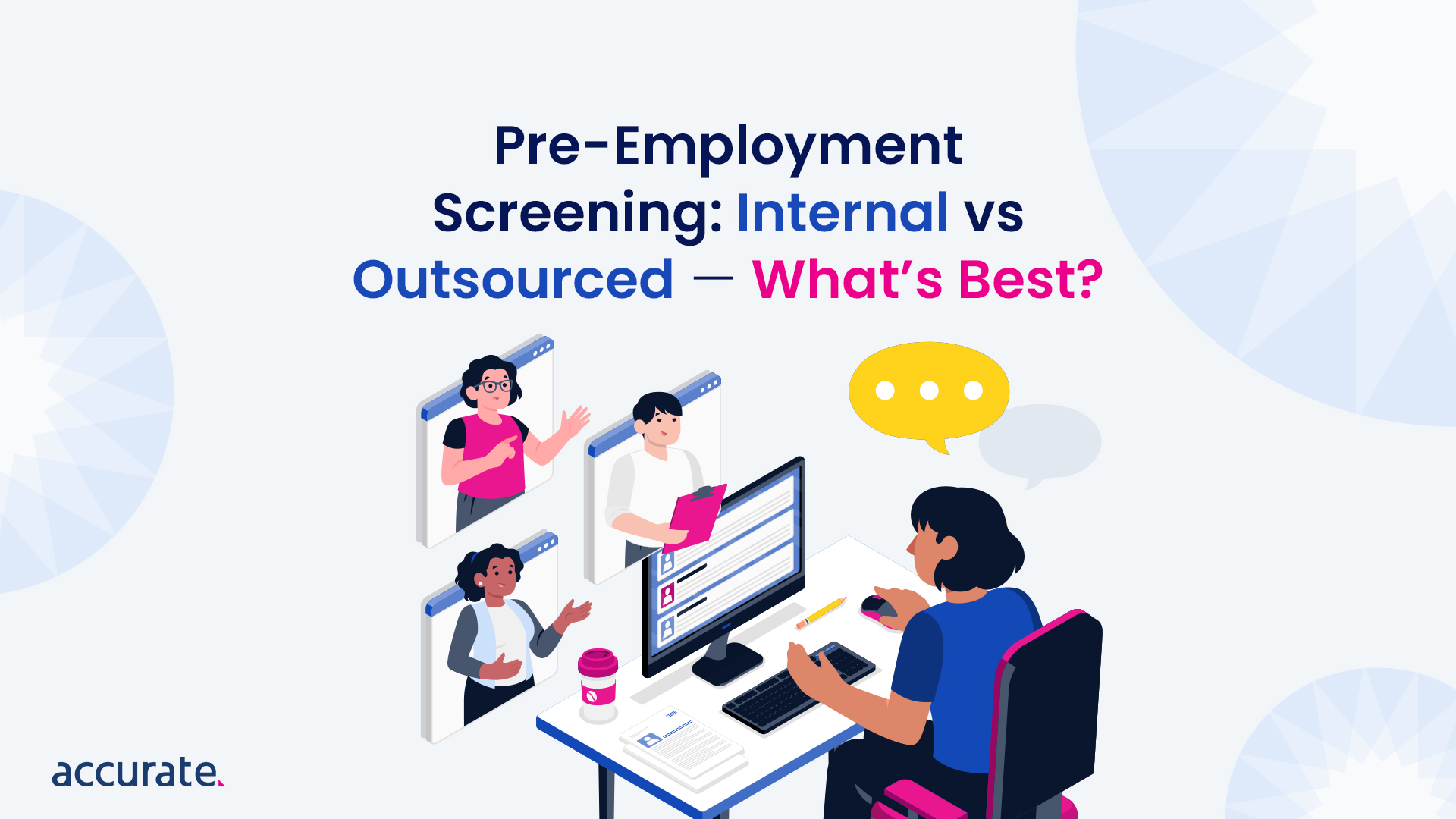As any business owner knows, the hiring process is essential to building a strong team. Not only do you need to find candidates with the right skills and experience, but you also need to ensure they are reliable and trustworthy.
One way to help ensure you’re making the best possible hiring decisions is to conduct background checks as part of your process. By taking the time to verify an applicant’s history, you can get a better sense of their character and whether or not they would be a good fit for your company.
But several legal considerations need to be taken into account, such as complying with anti-discrimination and privacy laws, obtaining consent, and dealing with criminal convictions.
So, as an employer, you need to ensure your employment screening framework balances the need to appropriately vet your candidates to be legally compliant. To help get your screening process in line with the law, here are the key legal considerations you should take into account.
Disclaimer: The contents of this article do not constitute legal advice, are not intended to be a substitute for legal advice, and should not be relied upon as such. You should seek legal advice or other professional advice in relation to any particular matters you or your organisation may have.

Complying With Anti-Discrimination Law
In Australia, there are several federal and state laws prohibiting discrimination based on certain protected attributes, such as race, religion, and disability to name a few. This means background screening must be conducted in a way that is fair and objective without unfairly excluding applicants on the basis of these protected attributes.
There are several ways to ensure compliance with anti-discrimination laws when conducting background screening, such as using job-related criteria to screen applicants and ensuring the screening process is applied equally to all applicants.
For example, you should take care to avoid screening for background information irrelevant and/or an inherent requirement to the job at hand. You’ll also need to provide the candidate with a clear explanation as to how the particular screening check will be used to determine their suitability for the role.
What Should You Do If Your Candidate’s Criminal History Check Is Returned With a Disclosable Court Outcome?
One common form of discrimination prohibited by law in Australia is discrimination based on a criminal record. For example, Tasmania and the Northern Territory have laws specifically prohibiting discrimination based on a criminal record. These laws are designed to protect individuals from being unfairly treated in the job market.
If you receive a police check with a disclosable court outcome for your candidate, there are certain steps you should take. First, assess the nature of the offence and how long ago it occurred. You should also consider whether the offence is relevant to the role they’re interviewing for.
For example, if your candidate is applying for a job as a school teacher and their background history check shows a history of violence, this may be cause for concern. But, if your candidate is applying for a job in retail and their police check shows a shoplifting offence from 10 years ago, this may not be as significant.
Once you have assessed the nature of the offence, you can decide on whether to proceed with the hiring process or not.
In instances where you believe there is cause for concern, it’s advisable to discuss the situation with your lawyer so you can understand your potential liability if you need to refuse an applicant based on what you’ve learned.

Complying With Privacy Laws
When it comes to pre-employment screening, employers need to be mindful of both the intrusion into the potential employee’s life and the confidential nature of the information disclosed. While such checks can help ensure the person being hired is a good fit for the job, they can also be quite invasive.
So, it’s necessary to remember that this is someone’s life and to handle the situation with care.
In addition, you need to be aware of the confidential nature of the information disclosed by the prospective employee and take steps to protect it. If you and your organisation aren’t careful, you could find yourselves in breach of the Australian Privacy Act.
According to the Privacy Act, employers should be mindful of adhering to the following privacy principles:
- Only collect and make use of information that is necessary for assessing the candidate’s suitability for the job position;
- Inform the candidate what information you intend to collect and why;
- Don’t disclose the information to anyone not directly involved in the recruitment process;
- Ensure that the information collected is up-to-date; and
- Inform the candidate if a third party, such as Accurate Background, will be conducting the background screening on behalf of the organisation.
Consent for Background Screening
It’s important to get consent from the candidate before conducting a background check, otherwise you could be deemed as breaching their privacy. You need to make sure the candidate knows what they’re agreeing to before getting their consent.
This means being clear about what information you’ll be reviewing and why you need it. You also need to get their explicit permission in writing. Once you have consent, you can go ahead with the background check.

State and Federal Workforce Screening Requirements
Beyond complying with privacy laws, consent requirements, and anti-discrimination laws, employers have certain obligations to conduct specific background checks depending on the sector they operate in.
For example, the Protective Security Policy Framework (PSPF) sets out the standards for security screening of candidates applying to work within the Australian Government. One of the standards mandates government entities to include identity and eligibility to work in Australia checks as part of their recruitment process.
For state and local government positions, certain laws govern the pre-employment screening process. For example, in New South Wales, if a candidate is likely to work with protected information, they may need to undertake a security clearance check with the Australian Government Security Vetting Agency (AGSVA).
For more information on state and federal workforce screening requirements, be sure to read through our article on recommended and required background screening by sector.
Key Takeaways
Background checks are an important part of the hiring process for many businesses, but they can also be a legal minefield. Make sure you understand the laws in your jurisdiction and what you can and cannot ask prospective employees.
The best way to strike a balance between hiring someone who is both competent and a good fit for your company, and respecting the laws around privacy and anti-discrimination, is to develop and implement a appropriate policies and processes and ensure staff are adequately trained.
Alternatively, you can consider engaging the help of a trusted third-party screening agency to help you develop your policy and navigate the hiring process. At Accurate Australia, we understand that every organisation is different and that there is no one-size-fits-all solution when it comes to screening.
We work closely with our clients to understand their unique needs and then customise a screening package that meets those needs. We take into account all the necessary legal obligations and make sure that our clients are compliant with the latest legislation. We pride ourselves on being a holistic provider of screening services and offer a comprehensive range of solutions that can be tailored to any organisation.
Contact us today to find out how we can help you.



